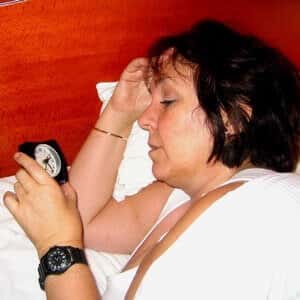
Many women going through menopause may tell you that it’s giving them gray hair and making them feel older. Two studies from UCLA now confirm that menopause, especially the night sweats and consequent sleeplessness that accompany it, contributes to more rapid biological aging. Sleepless menopause is a common complaint.
Determining Biological Aging:
The studies used an “epigenetic clock” to determine biological rather than chronological age. This tool looks at gene methylation in cells from blood, saliva and the lining of the cheek.
Earlier Menopause and Faster Aging:
The investigators analyzed DNA from more than 3,000 women, including women participating in the Women’s Health Initiative. They found that women who were younger when they reached menopause aged more rapidly. They also found that postmenopausal women who had five symptoms of insomnia were about two years older, biologically, than women of the same chronological age who were not having trouble sleeping.
The scientists anticipate that they will be able to use their biological clock technique to assess the value of menopause treatments such as hormone replacement therapy.
PNAS; Biological Psychiatry, online July 25, 2016
Although we don’t know of any ways to reverse the epigenetic clock, we do have some ideas for avoiding a sleepless menopause in our Guide to Menopause.

